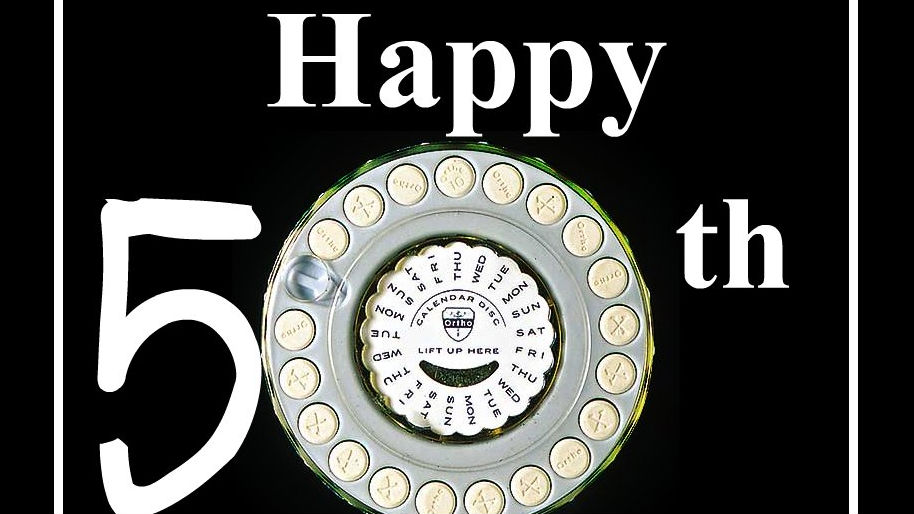Is hormonal birth control linked to depression and suicide?

- A pair of robust studies out of Denmark finds that women’s hormonal birth control is linked to a greater risk of depression and suicide.
- Whether hormonal contraception actually causes depression is hotly debated, however. Pregnancy itself, both unintended and intended, is also linked to adverse mental health outcomes.
- Every woman’s body reacts differently to hormonal fluctuations.
During nearly two decades of practice, Dr. Monique Tello, a physician at Massachusetts General Hospital, heard from numerous patients using hormonal contraception — like the pill, vaginal rings, implants, and intrauterine devices — that their birth control made them feel depressed. Tello apparently wasn’t the only doctor fielding these complaints, as numerous studies had been conducted exploring the potential risk.
“While many of these did not show a definitive association, a critical review of this literature revealed that all of it has been of poor quality, relying on iffy methods like self-reporting, recall, and insufficient numbers of subjects,” she wrote for Harvard’s Health Blog.
Finally, in 2016, a high-quality study illuminated the matter as no previous research had. Scientists at the University of Copenhagen pored through in-depth data from Denmark’s national health system on more than one million women aged 15-34 over 13 years of age and found that the use of hormonal contraception “was associated with subsequent use of antidepressants and a first diagnosis of depression.” The increased risk differed sharply depending upon the type of contraception and the user’s age. Adolescents on the pill, for example, were 80% more likely than non-users to be prescribed an antidepressant for the first time during the study period, while for all ages, the risk was only 23% greater.
Relative vs. absolute risk
Tello was impressed with the study but carefully put it into context.
“Should we stop prescribing hormonal birth control? No. It’s important to note that while the risk of depression among women using hormonal forms of birth control was clearly increased, the overall number of women affected was small. Approximately 2.2 out of 100 women who used hormonal birth control developed depression, compared to 1.7 out of 100 who did not.”
Two years after publishing their study on hormonal contraception and depression, the University of Copenhagen team utilized Denmark’s health data again, this time to explore a potential link between hormonal birth control and suicide. They found one. Compared to women who had never used hormonal birth control, women who had were about three times more likely to commit suicide and twice as likely to attempt it.
Roughly 20-25% of the 77 million women aged 15-49 in the United States use hormonal contraception. If the Danish researchers’ data holds true for American women, hormonal contraception may factor significantly into the estimated 5,500 yearly suicides for this group.
But these findings are hotly debated. “Association is not the same as cause,” Dr. Jessica Kiley, chief of general obstetrics and gynecology at Northwestern University Feinberg School of Medicine, said.
Kiley and other researchers from Northwestern published a review of the scientific literature in November 2020. They found that placebo-controlled trials of women with psychiatric disorders reported “similar rates of mood symptoms in hormonal contraceptive users compared with nonusers.”
Pregnancy itself causes depression
Kiley and her colleagues also noted that unintended pregnancy is known to trigger depression. A study conducted in Bangladesh found that women with unwanted pregnancies had a 60% higher risk of prenatal and a 32% higher risk of postnatal depressive symptoms than women with intended pregnancies.
However, even planned pregnancy increases the risk of depression. Perinatal depression — depression that occurs during or soon after childbearing — affects about 10 to 20% of women in the U.S. Suicide is actually the second-leading cause of death for women in the post-pregnancy period. And the situation seems to be getting worse. According to a 2020 study published in JAMA Psychiatry, the prevalence of suicidal thoughts and self-harm in the year before and after giving birth nearly tripled, from 0.2% to 0.6%, between 2006 and 2017, putting 24,000 individuals in the U.S. at potential risk of suicide each year.
Bottom line: The vast majority of women respond just fine to both hormonal contraception and pregnancy, but any time the body’s hormones are forced into flux, things can go haywire. A heightened risk of depression and suicide does seem to be a possibility with hormonal birth control. Every woman’s body reacts differently, so it is important that women are listened to and supported in their medical care as well as any decision they make about their reproductive health.
“In the end, every medication has potential risks and benefits. As doctors, we need to be aware of these so we can counsel effectively,” Tello says.





